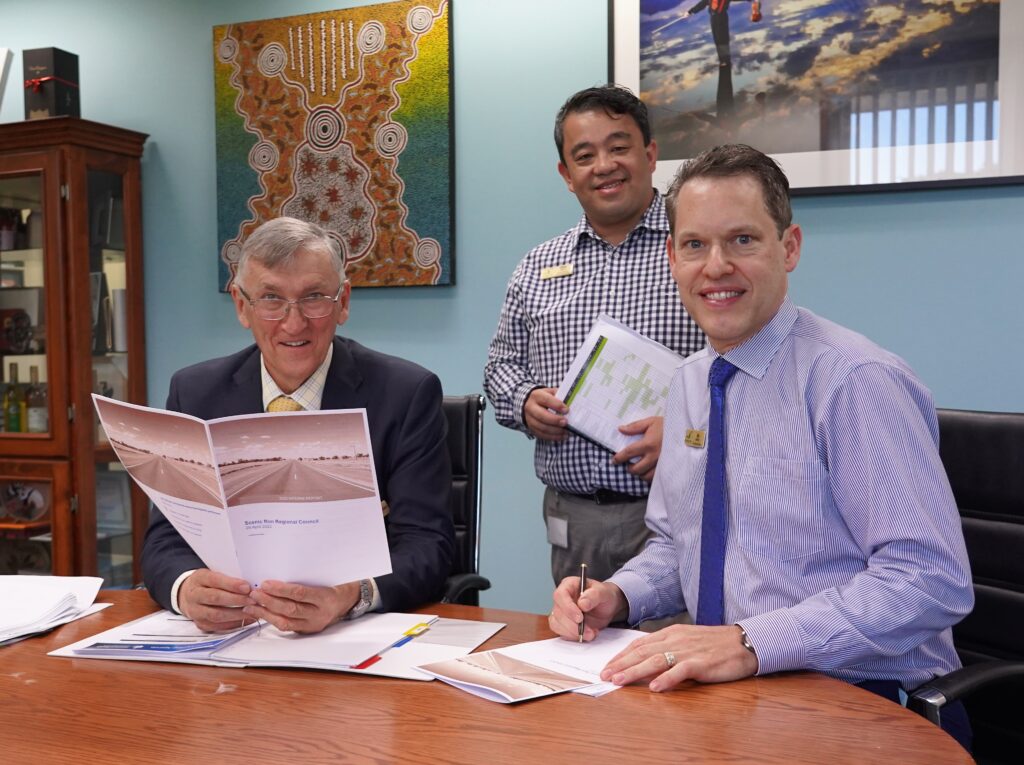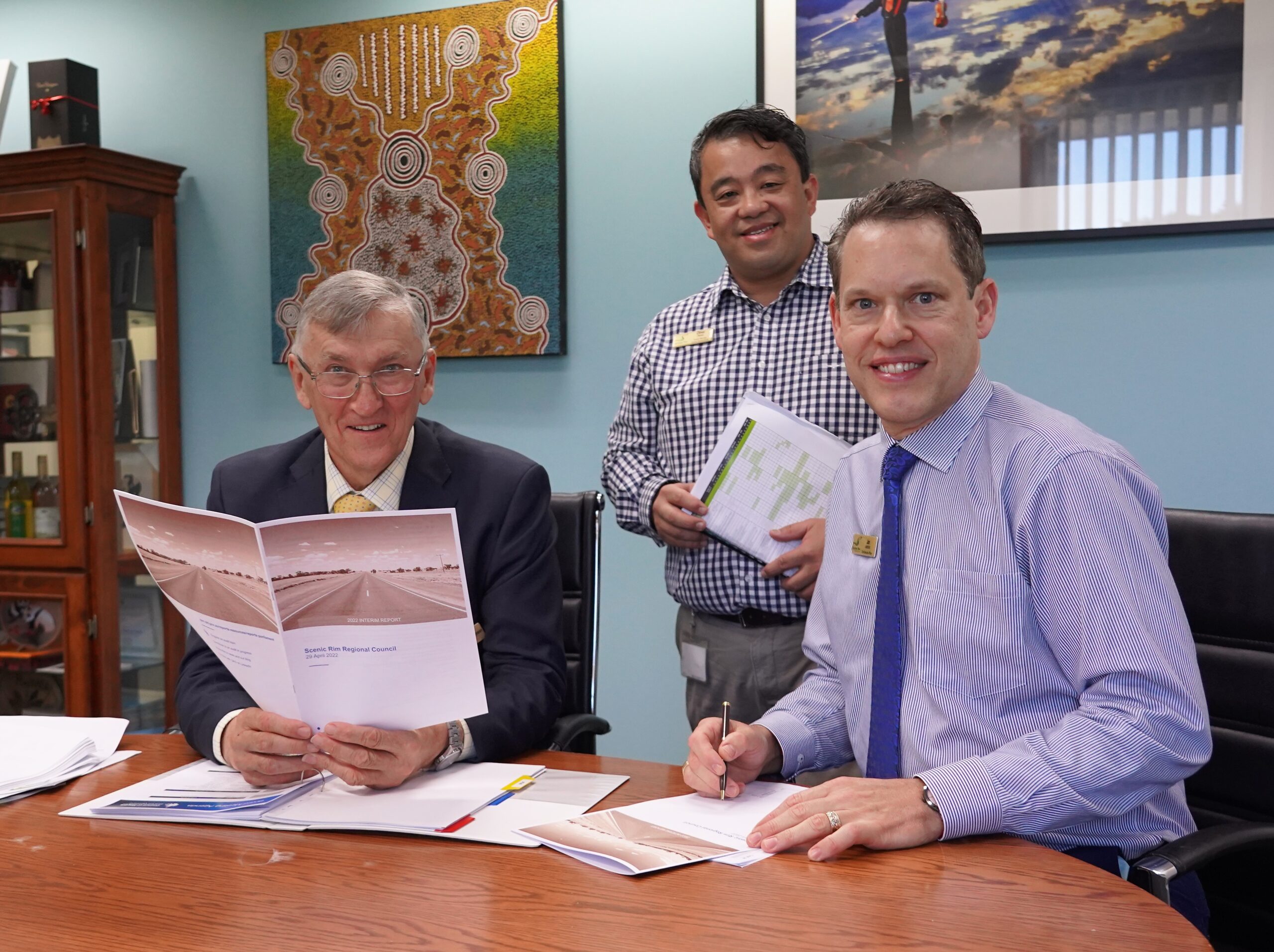Scenic Rim Regional Council has again received a low relative risk rating for its long-term financial sustainability in the Local Government 2021 report issued by the Queensland Audit Office (QAO), noted at last week’s Ordinary Meeting.
The report detailed that Council has achieved an overall lower relative risk assessment based on its Operating Surplus Ratio, Net Financial Liabilities Ratio and Asset Sustainability Ratio.
The rating specifies that there are lower risks of financial unsustainability based on current income, expenses, asset investment and debt financing policies.
The results received are from the annual audit of all local government entities for the 2021 financial year to ensure the provision of reliable financial statements comply with relevant laws and standards.
Council CEO Jon Gibbons said the results were great news for Scenic Rim Regional Council.
“The results of our promising financial health compare very favourably to other local governments and those local governments that Council is often compared with across the South East Queensland region,” he said.
“Council took just 92 days – from 30 June 2021 – to have QAO issue their certified audit opinion highlighting the timely and transparent financial processes Council has in place. Additionally, QAO has rated Council’s framework for internal controls, including risk assessments, and communication and monitoring activities as effective.”
More generally, six recommendations were made for the consideration of all Councils, and where relevant, they are to be incorporated into corporate frameworks to maintain compliance.
Scenic Rim Mayor Greg Christensen said that he acknowledged the Executive Leadership Team for their robust leadership of the organisation during some very difficult times, and proficient fiscal management to achieve a positive rating from QAO.

General Manager Council Sustainability, Oliver Pring said these recommendations are acknowledged by Council and they stipulate that consideration should be given to things like our financial statement maturity model to identify improvement opportunities for the management of financial statements, and to assess the effectiveness of the audit committee to ensure governance and performance controls are in place.
“The recommendations also detail that Councils should consider their asset management plans that include the review of asset usage and the timings and cost of capital projects, including their ongoing maintenance, all of which will help identify future funding requirements and improved levels of service to the community.
“Overall, the findings and unqualified Audit Report are a reflection of Council’s strong financial management”, Mr Gibbons said.
View the full report at the Queensland Audit Office website here.

